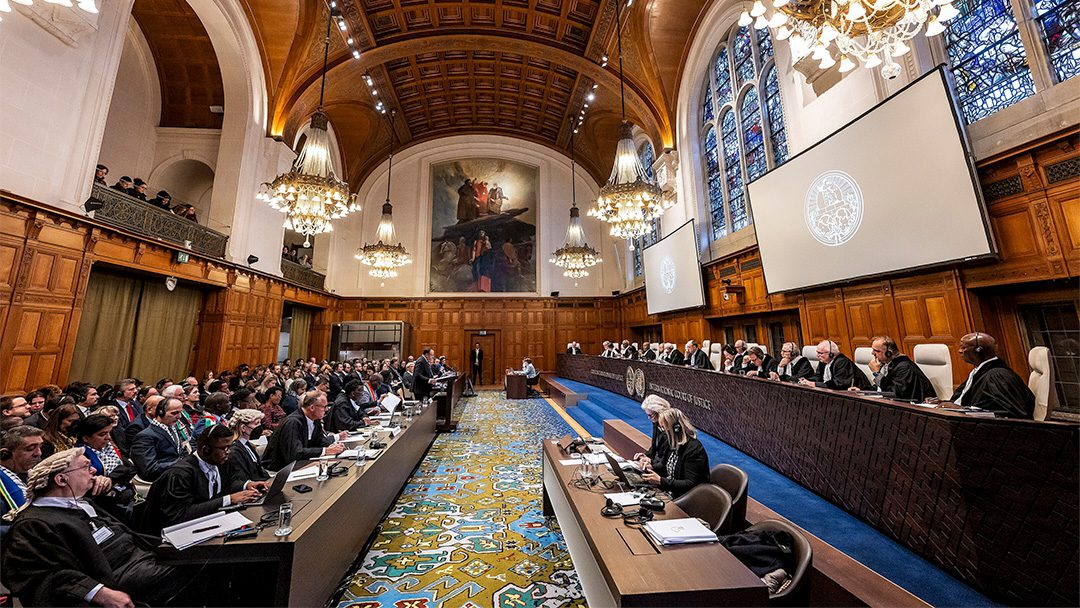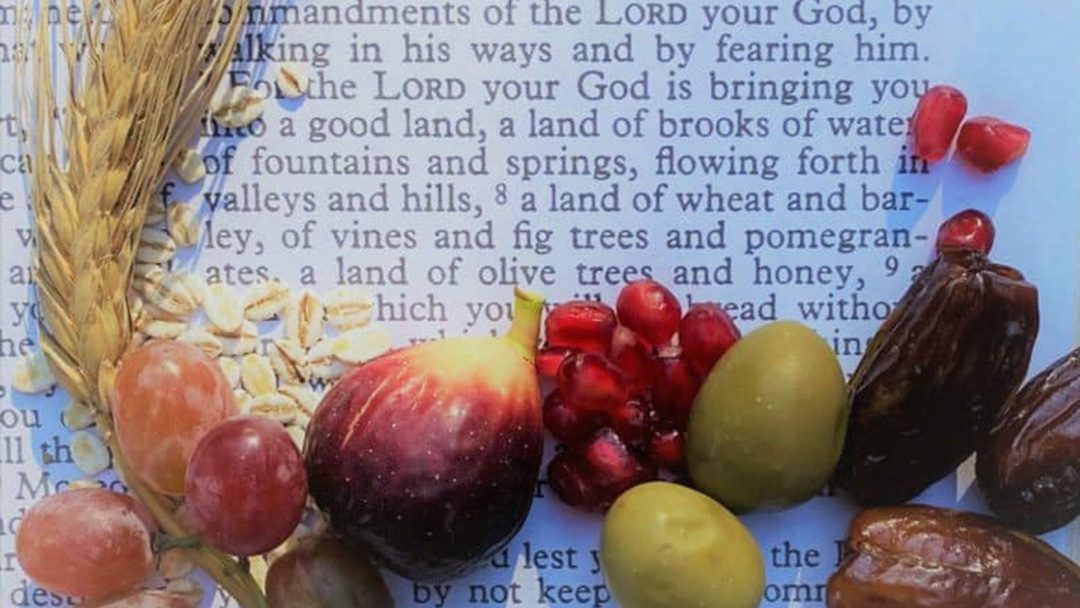A continuing theme throughout the celebration of the Feast of Tabernacles is the joy that comes from knowing that we can rest and be safe within the protective shelter of God’s unchanging love. Truly He is Jehovah Jireh, the Lord who will provide. That is something to both affirm and celebrate!
A sukkah must have plenty of shade (the word itself comes from a verb that means basically “to cover”), but with enough gaps in the roof to see the stars. Living in the shade symbolises confidence in God’s protection, as expressed by the psalmist, “hide me in the shadow of Your wings” (Psalm 17:8).
We live in a world in which at times many can feel very vulnerable. Innocent people are exploited in countless appalling ways. There is an increasing awareness these days that in our modern western societies we are struggling to protect adequately those who are most vulnerable, such sadly is our self-absorption and excessive concern with ourselves and our own needs.
It has often—and rightly—been said that one of the genuine marks of a civilised and mature society is its commitment to caring for and protecting its weakest members. But God never intended any society to do that apart from Him.
He is our true shelter and our protection, and the commandment to the Jewish people to dwell in booths during the Feast of Tabernacles was designed to affirm just that. Everything in life starts with God and our relationship of dependence upon Him.
Listen to Psalm 27:5—“For in the day of trouble He will keep me safe in His dwelling; He will hide me in the shelter of His tabernacle and set me high upon a rock.” And then, regarding those who fear the Lord, the psalmist (Psalm 31:20) writes: “In the shelter of Your presence You hide them from the intrigues of men; in Your dwelling You keep them safe from accusing tongues.”
A week in a sukkah, including meals and fellowship together as a family, and even sleeping there, certainly brings home an awareness of our dependence upon God. And flowing from that we can also see how the Holy Spirit would inspire and enable the booth-dweller to care genuinely for others in need.
As we receive, so we give. And then as we give, so we receive. I think Christians can get a bit uneasy sometimes about the idea of reward in the Christian life. But this principle can be found in many places in the Bible, as for example in the opening verses of Psalm 41—“Blessed is he who has regard for the weak; the Lord delivers him in times of trouble. The Lord will protect him and preserve his life.”
In other words, acknowledge your need, let God be your protection and your shelter, call upon Him and cast pride out the window, reach out to others in need (the Holy Spirit will show you who—and how), and see how the Lord continues to watch over you.
The truth is that we will learn to be protectors of the weak and vulnerable (a major theme in the Bible, and sadly often neglected by believers) to the extent that we recognise our own need of God’s daily protection, shelter and provision.
Unfortunately, there is something called pride that tends to lurk deep (and sometimes not so deep) within us that prevents us from acknowledging our own dependence upon the Lord, and our daily need of Him.
We miss out then on the joy of receiving—the joy of receiving blessing from the Lord. As a consequence, our hearts are hardened to the struggles and pain of others, our eyes are blind to the poverty of their lives, and our ears are deaf to their cries.
Listen—God loves you! He is determined to protect you! He is your daily shelter! He delights in providing for you! Get used to it! On this matter of providing for us, we saw earlier how the Lord watched over His people in the 40 years of their wilderness wandering.
Listen to the confession of God’s people in Nehemiah 9:20-21—“You did not withhold Your manna from their mouths, and You gave them water for their thirst. For forty years You sustained them in the desert; they lacked nothing, their clothes did not wear out nor did their feet become swollen.”
Related to this theme of God’s provision and care is the fact that the Feast of Tabernacles has also an agricultural aspect. In Exodus 23:16 it is referred to as the Feast of Ingathering, as the feast is celebrated at the time of the final harvest of the year, the harvest of the produce of the orchards and vines. That is why you will see booths decorated with fruit hanging on strings from the roof.
There is a prophetic element here, as the final harvesting of crops speaks also of the final, joyful ingathering of believers, which includes the restoration of Israel as well as the end-time gathering of the nations to the Lord.
This future dimension seems to be the best way to understand Zechariah 14:16—“Then the survivors from all the nations that have attacked Jerusalem will go up year after year to worship the King, the Lord Almighty, and to celebrate the Feast of Tabernacles.”
So Tabernacles has always been a time to thank God for the provision of the rains that are needed for the fields to produce their crops. We read in Leviticus 23:39—“So beginning with the fifteenth day of the seventh month, after you have gathered the crops of the land, celebrate the festival to the Lord for seven days…”
The first day of the feast was a Sabbath day, and so the Israelites were called to rest after the work of gathering the crops. It was indeed, and still is, a time for rejoicing! It is a joyous thing to be able to celebrate the goodness of God evident in so many ways!
Never take His blessing for granted—give thanks to Him continually! Whenever the Feast of Tabernacles approaches, make it your resolve to rejoice in the goodness of your God. Indeed, as Paul urged the Philippian believers, “Rejoice in the Lord always.”
In Jesus’ time around a million Jews would gather in Jerusalem—many from far away —and dwell in tents. It must have been an amazing and truly joyful sight! The rabbis had a saying then: “If you have not seen Jerusalem at Sukkot, you don’t know what joy is.”
When joy overflows, it does not translate into self-centred indulgence. As we have seen, and I cannot emphasise this enough, the true joy of the Lord finds expression in our honouring Him with our very lives. We do that by giving back to Him, and by blessing those who are weak and in need, even as we have been blessed.
That is the life of the Spirit of God flowing through His people! The Biblical principle of “blessed to be a blessing” has never changed! May the sukkah protection, which shows us that God truly is our shelter and provision, never cease to find expression in God-honouring lives. That, I can assure you, will result in a never-ending cycle of the joy of the Lord!












0 Comments